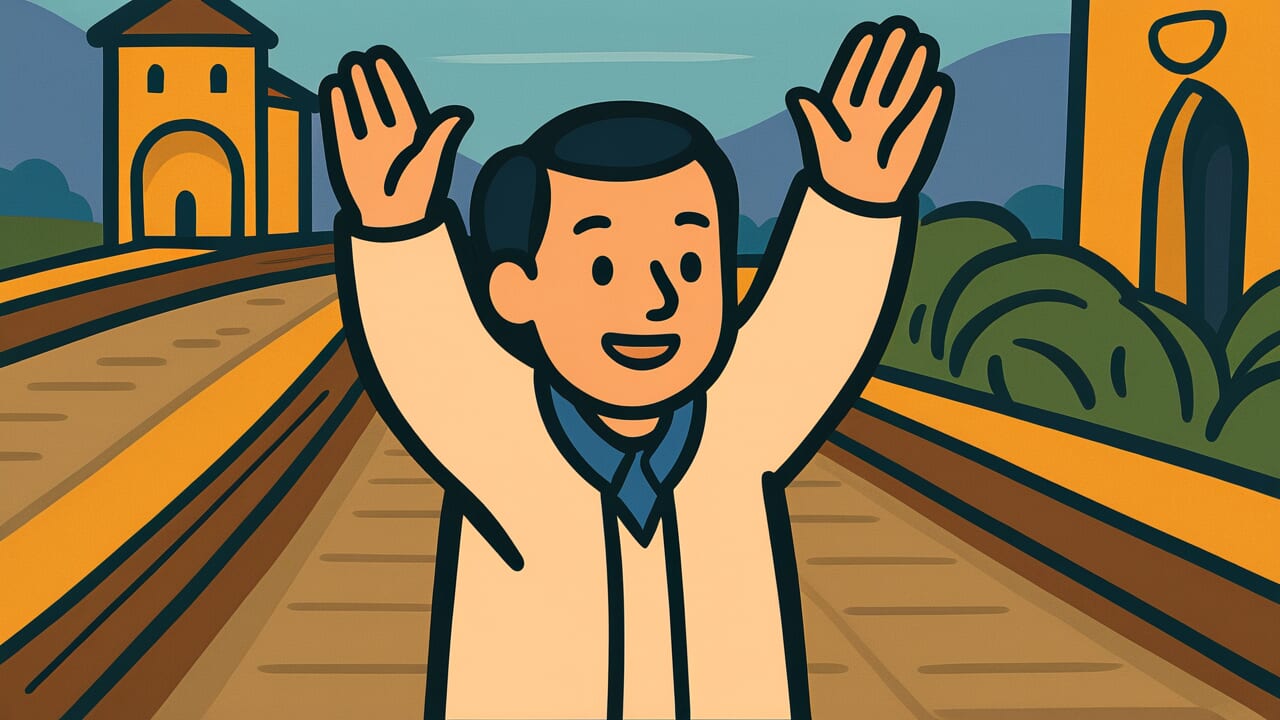How to Read “Do good deeds without asking about the future”
Kōji o okonaite zenteī o tou nakare
Meaning of “Do good deeds without asking about the future”
This proverb teaches that when you do good deeds, you should not think about what will happen next or what good things might come back to you.
When you help someone or show kindness, you should not expect anything in return. You should not think “They will thank me later” or “Someone will help me someday because of this.”
True good deeds come from a pure heart. They happen without calculation or expectation.
The moment you seek a reward, your action becomes a transaction. The value of your kindness gets damaged.
When you see someone in trouble, you should reach out without thinking about gain or loss. That is real kindness and a beautiful way to live.
Modern society tends to judge everything by efficiency and returns. This proverb reminds us of the preciousness of selfless goodness.
Origin and Etymology
The exact source of this proverb has several theories. It is believed to be influenced by ancient Chinese philosophy, especially Confucianism and Taoism.
“Kōji” means good deeds. “Zenteī” means future results or rewards. “Tou nakare” means do not ask or do not seek.
Chinese classics contain many teachings about good deeds and selfless hearts. Laozi’s philosophy includes the concept of “wu wei,” which means acting naturally without artificial expectations.
Confucianism also teaches that true virtue comes from a selfless heart that seeks no reward.
After reaching Japan, this idea likely connected with the spirit of bushido. Samurai valued honor and considered calculating behavior shameful.
When performing good deeds, thinking “What good things will come from this?” was seen as damaging the purity of the action.
The structure of the phrase uses “nakare,” an old prohibition word. This gives it a strong warning tone.
The proverb values the good deed itself. It leaves the results to heaven. This captures the Eastern spirit of selflessness.
Usage Examples
- I continue volunteer work with the spirit of “Do good deeds without asking about the future,” never thinking about rewards
- She helps people in trouble because she practices “Do good deeds without asking about the future”
Universal Wisdom
Humans naturally expect something good to come back when they do good things. This expectation connects to our survival instinct. It is a very natural way the mind works.
This proverb has been passed down for hundreds of years. This is because it saw through this fundamental human weakness.
Seeking rewards for good deeds actually stains the action itself. When someone you helped does not thank you, you feel disappointed.
When someone forgets your kindness, you feel betrayed. This proves your good deed was actually an unconscious investment.
Our ancestors deeply understood this human nature. That is why they strongly warned us not to ask.
A heart that expects returns turns goodwill into something conditional. Eventually it makes people suffer. When expectations are betrayed, the good deed itself becomes a burden.
True freedom comes from a heart that seeks nothing. When you let go of results, you can finally perform good deeds purely.
This proverb shows deep human understanding. It teaches that real peace of mind exists beyond calculation.
This is a universal truth that still touches our hearts today, across time.
When AI Hears This
Doing good without expecting returns can be mathematically explained through game theory as “stabilization of cooperative strategy.”
In a one-time game, betrayal pays better. But repeated games change everything. Robert Axelrod’s research showed that in repeated prisoner’s dilemma, “tit-for-tat strategy” scored highest.
More interestingly, “generous tit-for-tat” wins in the long term. This means occasionally cooperating without reward.
The key point is the mechanism where behavior without calculation creates “reputation capital.” When you lend 100 yen and do not demand repayment, people around you share information that “this person is trustworthy.”
This accumulates as invisible assets. It creates chances to receive 1000 yen of cooperation from completely different people in the future.
Actions that seem like losses actually raise your credit score across the information network.
The interesting part is the conditions where this strategy works. The game must be repeated enough times, and reputation must spread in society.
This proverb assumes “a society where someone always sees your actions.” Behavior without asking for returns is actually the most sophisticated long-term investment strategy.
Lessons for Today
Modern society treats everything as a transaction. On social media, we expect instant reactions like “likes.” Even human relationships are often measured by gain and loss.
But this proverb teaches us something important. Truly valuable things exist outside calculation.
When you are kind to someone, it is okay if no words of thanks come back. When you help someone in trouble, your action’s value does not change even if they forget your kindness.
The value of good deeds is determined by your own heart, not by others’ reactions.
Letting go of expectations actually frees you. When you are released from expectations, you can purely do what you think is right.
This is real strength that is not swayed by others’ evaluations.
Start with small things. Be kind where no one is watching. Do not mind if you are not thanked.
When you accumulate such selfless kindness, a quiet sense of fulfillment will grow in your heart. That is the real richness this proverb teaches.



Comments